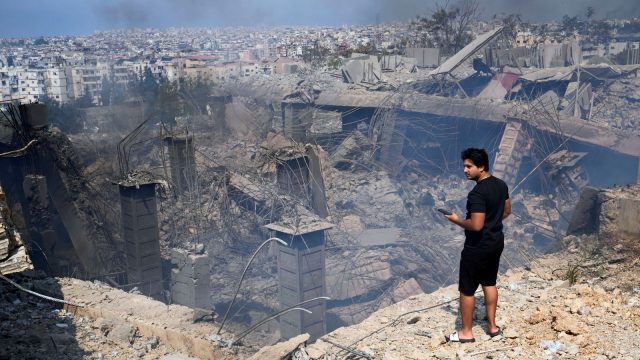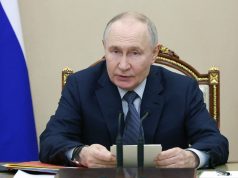Hezbollah leader Hassan Nasrallah has been killed after airstrikes in Beirut, the Israeli army has said.
Recent weeks have seen Israel unleash a barrage of strikes against Lebanon after it turned its attention to the conflict at its northern border.
On Friday, Israel targeted the capital Beirut with a series of attacks claiming to have struck the headquarters of Hezbollah.
The Israel Defence Forces (IDF) said it carried out a “precise strike” on Hezbollah’s “central headquarters”, which it claimed was “embedded under residential buildings in the heart of the Dahieh in Beirut”.
The first wave of attacks shook windows across the city and sent thick clouds of smoke billowing into the air.
While Israel stressed it had been a “precise” strike, preliminary figures from Lebanon’s health ministry confirmed at least six other people were killed and 91 were wounded.
Israel said Nasrallah was the intended target and initially there were claims he had survived.
However, after several hours of confusion, his death was confirmed by Israel.
“Hassan Nasrallah will no longer be able to terrorise the world,” the IDF said.
Hezbollah itself is yet to issue a clarifying statement on its leader’s fate.
Instead, not mentioning Nasrallah, Hezbollah said it had launched missiles at Israeli sites in response to attacks on Lebanese cities and villages.
Rosh Pina in the north of Israel was among the targets.
Alongside claiming to have killed Nasrallah, the IDF said it had killed a number of other commanders, including Ali Karaki, the commander of the southern front.
The country’s military said the strike was carried out while Hezbollah leadership met at their underground headquarters in Dahieh.
In the aftermath of the most recent attacks, an Israeli military spokesperson declined to comment on whether US-made Mark 84 heavy bombs were used in the strike against Nasrallah.
“The strike was conducted while Hezbollah’s senior chain of command were operating from the headquarters and advancing terrorist activities against the citizens of the State of Israel,” Lieutenant Colonel Nadav Shoshani said in a media briefing.
He continued: “We hope this will change Hezbollah’s actions.”
Read more from Sky News
Did Israel sabotage the best chance of ending the war?
Starmer and Netanyahu fail to meet
He added the number of civilian casualties was unclear but blamed Hezbollah for positioning itself in residential areas.
“We’ve seen Hezbollah carry out attacks against us for a year. It’s safe to assume that they are going to continue carrying out their attacks against us or try to,” he said.
Meanwhile, Iran said it was in constant contact with Hezbollah and other allies to determine its “next step”, but Reuters reported the country’s supreme leader was transferred to a secure location in light of the latest attack.
Speaking after the attack, Ayatollah Ali Khamenei called on Muslims “to stand by the people of Lebanon and the proud Hezbollah” and said: “The fate of this region will be determined by the forces of resistance, with Hezbollah at the forefront,” state media reported.
Nasrallah’s death will be a blow to Hezbollah as it continues to reel from a campaign of escalating Israeli attacks.
Nasrallah is latest Hezbollah leader to fall
While Nasrallah’s death is certainly the most high-profile of recent attacks, it continues a trend of Israel targeting Hezbollah’s leadership structure.
Also on Saturday, in the early hours of the morning, the commander of the group’s missile unit and his deputy were killed in another Israeli attack in southern Lebanon.
👉 Click to subscribe to the Sky News Daily wherever you get your podcasts 👈
Then, in a separate strike overnight on Friday, the IDF said it killed the head of Hamas’s network in southern Syria.
This followed the deaths of other senior commanders, including Muhammad Qabisi, earlier in the month.
























